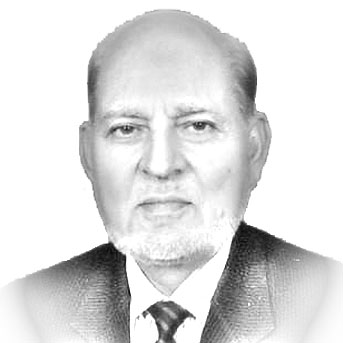Muhammad Hanif
ON invitation by the Pakistan government, Dr Abdullah Abdullah, Chairman of the High Council for National Reconciliation (HCNR) of Afghanistan, visited Pakistan from 28 to 29 September 2020. During the visit, his discussions with the Pakistani officials focused on bilateral relations and the intra-Afghan dialogue, as the first round of dialogue between the Taliban and Afghan delegation led by Dr. Abdullah Abdullah, in the backdrop of the agreement signed between the US and the Taliban on 29 February 2020, has already been held in Doha, Qatar. As per the US State Department, the salient points of the above mentioned US-Taliban agreement include the following. The United States is committed to withdrawing from Afghanistan its all military forces and of its allies and coalition partners including all non-diplomatic civilian personnel within fourteen (14) months following the announcement of the agreement.
In conjunction with the announcement of this agreement, the Islamic Emirate of Afghanistan which is not recognized by the United States as a state and is known as the Taliban will take all the measures to prevent any group or individual, including Al-Qa’ida, from using the soil of Afghanistan to threaten the security of the United States and its allies. After the announcement of guarantees for a complete withdrawal of foreign forces and timeline in the presence of international witnesses, and guarantees and the announcement in the presence of international witnesses that Afghan soil will not be used against the security of the United States and its allies, the Islamic Emirate of Afghanistan will start intra-Afghan negotiations with the Afghan side on 10 March 2020. A permanent and comprehensive ceasefire will be an item on the agenda of the intra-Afghan dialogue and negotiations. The participants of intra-Afghan negotiations will discuss the date and the modalities of a permanent and comprehensive ceasefire including joint implementation mechanisms which will be announced along with the completion and agreement over the future political roadmap of Afghanistan. During his visit, Dr Abdullah Abdullah met the President, Prime Minister, the Senate Chairman, National Assembly Speaker, Foreign Minister and other dignitaries. He also delivered a key-note address at the Institute of Strategic Studies, Islamabad (ISSI) and the Afghan delegation also had discussions with the Pakistani side in the Pakistan Ministry of Foreign Affairs.
As per the ISSI press release about the talk, concerning Pakistan-Afghanistan bilateral relations, Dr Abduallah Abdullah said that the two sides have discussed practical issues, concerns and common interests and will continue to do so in the future. He appreciated the important role Pakistan has played in the Afghan peace process and envisaged a peaceful future for the region. He concluded by saying that patience is needed and welcomed PM Imran Khan’s statement about ending violence and working toward a ceasefire in Afghanistan. On the occasion, Pakistan’s Foreign Minister, Shah Mehmood Qureshi, stated that today there is recognition that a negotiated political settlement is the only and best way forward. He added that the reduction in violence leading to a ceasefire is a prerequisite for peace. He emphasized that all sides will have to work for peace with patience. The talks at the Foreign Ministry focused on intra-Afghan dialogue, the peace process and bilateral relationship, said Dr Abdullah in a tweet after the meeting. According to the official report issued by the Foreign Office, during the talks the Pakistan Foreign Minister expressed the hope that Dr. Abdullah Abdullah’s visit would open a new chapter in the bilateral relations and forge a common understanding of the Afghan peace process. Mr. Qureshi added that Pakistan had always maintained that there was no military solution to the Afghan conflict and encouraged all parties to reach a political solution through an Afghan-led and Afghan-owned process. He underlined that there was a need to guard against the detrimental role of ‘spoilers’, both within and outside Afghanistan, who did not wish to see the return of peace in the region.
Mr. Qureshi stressed that Pakistan wants an early peace in Afghanistan as it is necessary for the economic development, trade enhancement and the prosperity of the two countries. Therefore, for sustainable peace, while Pakistan is looking for the participation of all ethnicities in the future negotiated political settlement of Afghanistan, it is also looking towards advancing people-to-people contacts, mutual trade and economic/transit integration with Afghanistan. During interaction with the Pakistani officials, as the Afghan officials may be trying to get Pakistan’s support to convince the Taliban to agree for an early ceasefire agreement, Pakistan should be aware of the fact that the Taliban are likely to link the ceasefire with the progress of the dialogue, and they may not well come any suggestion in this regard. Pakistan should also keep in view that as the programme for the withdrawal of the US and allied forces from Afghanistan has already been decided, it should not support any new suggestion on this account. The above discussion indicates that the visit of Dr. Abdullah Abdullah was significant as it would help both the countries to understand each other’s viewpoint on the Afghan peace process and intra-Afghan dialogue. The visit will also contribute towards advancing bilateral relations of both countries.
—The writer is an ex-Army Colonel and Senior Research Fellow, Strategic Vision Institute, Islamabad.









